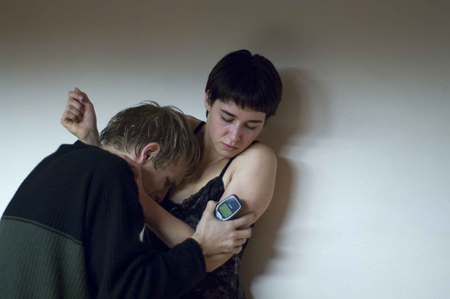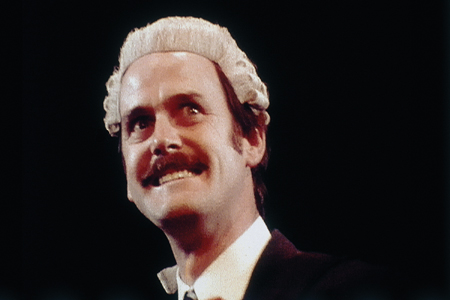John Hughes was associated with launching the careers of Brat Packers Molly Ringwald and Anthony Michael Hall and for lacing his entertainments with candid teenage dialogue of rare understanding. But it was John Candy who made Hughes a true comedic filmmaker and who gave Hughes the heart that his films needed to extend beyond populist entertainments. Hughes’s “adult” period, initiated by his masterpiece Planes, Trains, and Automobiles, produced a series of unusually accessible takes into middle-class culture. And it’s a pity that Hughes didn’t trust himself to push his perceptive prowess further. She’s Having a Baby‘s unexpected explorations into parenthood was followed by the funny but predictable Uncle Buck. Was Hughes smarter than he was letting on? (On the Ferris Bueller’s Day Off director’s commentary, which was removed from subsequent DVD editions by Hughes’s request, Hughes mentions that he shot the scene in the Chicago Art Institute as his tribute to culture.) But Uncle Buck was the last film Hughes would direct until 1991’s Curly Sue. But by then, it was too late. Hughes’s talents were lost forever. And he knew it. Which may be why he disappeared or made a mad dash for the pots of gold that executives often wave in front of talented men with mortgages.
It’s no accident that, with Candy’s death in 1994, Hughes’s films slipped into a series of vile (and seemingly endless) Home Alone and Beethoven sequels, along with wretched and inferior remakes of childhood classics. Eventually, Hughes got off the grid entirely, never emerging in our present age of Twitter and Facebook, refusing all interviews and abstaining from all work, save the many scripts still circulating in Hollywood.
What happened? Only the Lonely may be “a Chris Columbus film” of rare quality. But it was John Hughes’s powerful script that gave Candy a rare dramatic stretch as a shy Chicago policeman. The needlessly maligned film, Dutch, scripted by Hughes, transcended its formula (working-class dad takes privileged kid home for Thanksgiving) and its Planes, Trains, and Automobiles hand-me-downs by not only presented Ed O’Neill the thespic opportunity to prove that he was more than Al Bundy, but throwing this bickering pair into a rootless urban wilderness.
Hughes wanted his audience to know that comic actors appealing to blue-collar audiences during the 1980s and the 1990s were capable of delivering more, and that regular audiences shouldn’t be shy about asking for more. His color symbolism was often blunt (watch the hotel room scenes in Planes, Trains, and Automobiles and pay attention the blue worn by Candy and the white worn by Steve Martin, as well as the color of the blankets on the bed). He asked his actors, as seen in the above clip from Planes, Trains, and Automobiles, for extremely stylized dialogue delivery and facial mannerisms. But none of these artistic decisions undermined Hughes’s ability to get through to regular audiences in a more intelligent way than today’s Dennis Dugans. Hughes had a surprising talent for embedding touching character revelations that never really felt phony. Maybe because, with all the lowbrow jokes about hot dogs coming from lips and assholes (The Great Outdoors) or the conversational image of men playing Pick Up Stix with their buttcheeks (Planes, Trains, and Automobiles), we never expected the material to tug at our heartstrings. (No surprise that Kevin Smith and Judd Apatow are both heavily inspired by Hughes.)
But is it possible that Smith and Apatow, as skilled as they are, are mere craftsmen who have been spending their careers mimicking the genuine artist? And what does that say about the present state of the Hollywood sausage factory? If mimesis is the standard by which we judge a filmmaker great, then John Hughes’s passing certainly demands our reverence.

